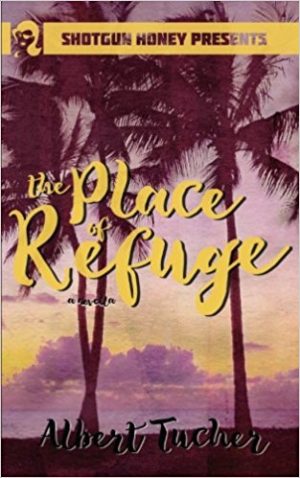
For some time, the Hawai`i County PD’s Detective Errol Coutinho and his partner Detective Kim have been on the trail of a serial killer of prostitutes. The murders stopped for a period of months, but now a Filipino hotel maid has discovered in what appears to be the renewal of working-girl carnage.
On the island of Oahu, undercover police officer Jessie Hokoana of the Honolulu Police Department is working to expose a major drug dealer, getting close to him and gaining his confidence using the oldest trick in the book. Jessie grew up on the Big Island, daughter of the owner of a small Korean barbeque place and Hosea Hokoana, an enormous Hawaiian man who feared nothing and no one, except perhaps his ex-wife, Jessie’s mother. Hosea decamped from the family 20 years ago, when Jessie was young.
Jessie’s target and boyfriend, the drug dealer Teddy Dias, is persuaded to go to Mexico to try to make a marijuana supply deal with the leader of a Mexican cartel. Pakalolo – nicknamed Kona Gold or Puna Butter – could be supplied by Teddy and fed into the Mexicans’ distribution network. He takes Jessie with him, and though the protection the local police can give her is minimal, in Mexico it’s nonexistent. She does have FBI agents tailing her, but she’s smart enough to elude them before the Mexicans realise they’re shadowing her.
For entertainment, Jessie and Teddy are taken to a cage fight, and one of the contestants is a huge Hawaiian man who wins his fight easily against three opponents. He’s Jessie’s father. Hearing that Hosea was in Mexico was the main reason she agreed to this dangerous trip. After the fight, they reconnect.
The troublesome fallout from the Mexico trip means Jessie needs to get away from Teddy, who’d have no qualms about killing her. She escapes to the Big Island, where Coutinho and Kim use her as a decoy to attract the prostitute killer. From there, things get complicated.
This book provides a great flavour for the rich multi-cultural society in Hawai’i. Coutinho’s ancestors were Portuguese, while Kim is Korean and their boss, Tanaka, is Japanese. Jessie is half-Hawaiian and half-Anglo. Coutinho went to college in Montana where “he had met militant advocates of racial purity, and he enjoyed making them crazy with examples from Hawaii.”
In Albert Tucher’s hands, these characters, regardless of their ethnic backgrounds, are interesting and unique individuals, not bending to stereotype. There’s also some humour in the book, especially among the detectives. Tucher resolves the big plot questions, but not the human relationship questions, which is probably more realistic than an excessively tidy ending and holds the door open for further installments. Although the book is mildly confusing in spots, Tucher provides good, solid writing with a believable plot and fine sense of place.
The story of Jessie’s family, especially of Hosea and his return to Hawaiian society and the consequences of that, predominate in The Place of Refuge. The serial killer angle is considerably slighter, which might actually be a relief if you feel overwhelmed by the number of serial killers appearing in crime fiction at the moment.
For more sunshine noir see Carl Hiaasen’s recent Razor Girl, and the classic Travis McGee books by John D MacDonald, both set in Florida, or Gunshine State by Andrew Nette, set in Queensland, Australia.
Shotgun Honey
Print/Kindle
£ 3.98
CFL Rating: 4 Stars